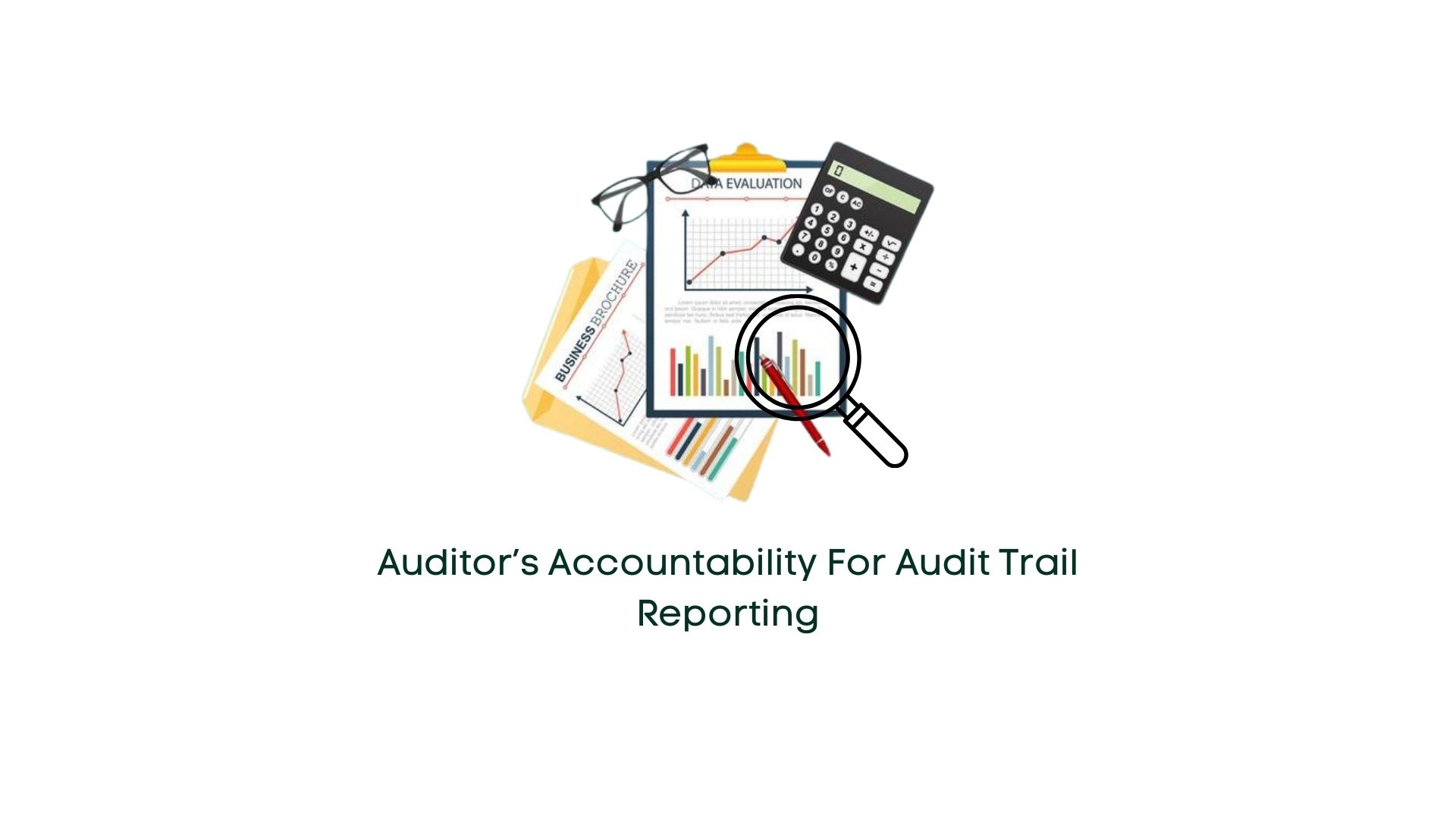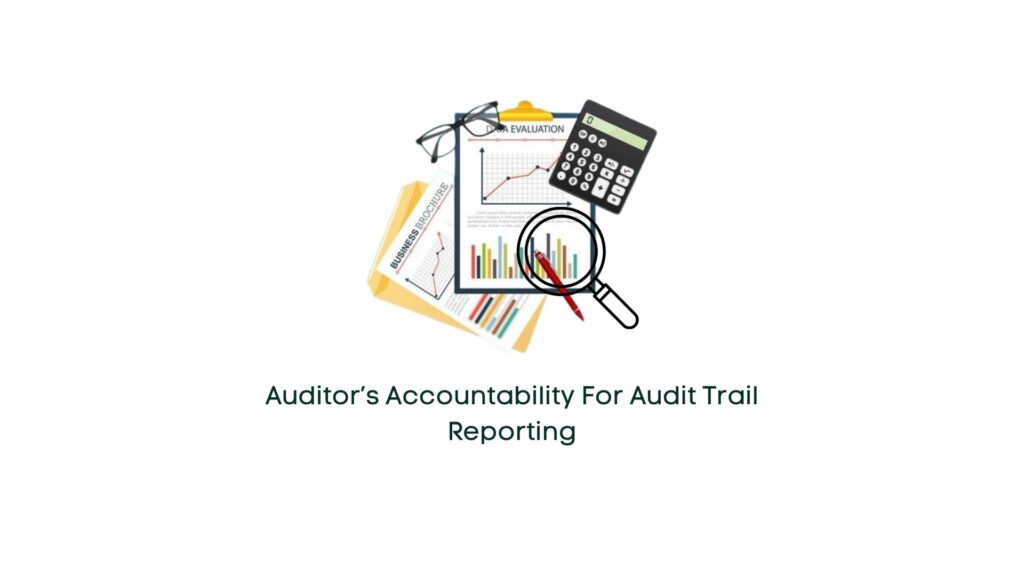
21 Mar Auditor’s Accountability for Audit Trail Reporting

An essential aspect of maintaining financial transparency and accuracy is the implementation of an audit trail, which serves as a detailed record tracking the origin and modifications of financial transactions within a system. Auditors are obligated to report on the adequacy and effectiveness of these audit trails, ensuring their integrity and validity.
Significance of Audit Trails
Audit trails offer numerous benefits, including enhanced transparency, improved audit efficiency, fraud detection and prevention, and regulatory compliance across various industries.
Regulations Mandating Reporting on Audit Trails
Specific regulations, such as the Sarbanes-Oxley Act (SOX) and International Standards on Auditing (ISAs), require auditors to assess and report on audit trails. Industry-specific regulations also dictate additional requirements for audit trail functionality and reporting.
Auditor’s Assessment and Reporting on Audit Trails
Auditors assess various aspects of audit trails, including their existence, functionality, accessibility, retention, and management’s controls. These evaluations contribute to the overall assurance process and provide valuable insights into an entity’s internal controls over financial reporting.
Reporting Mechanisms for Auditors
Auditors report their findings on audit trails through mechanisms like auditor’s reports, management letters, or formal communication to regulatory bodies, depending on the specific situation and identified issues.
Conclusion
Reporting obligations on auditors regarding audit trails are crucial for ensuring the accuracy and reliability of financial information. As regulations evolve to emphasize data integrity, effective reporting by auditors on audit trails remains prominent, promoting transparency and trust in financial statements.


No Comments